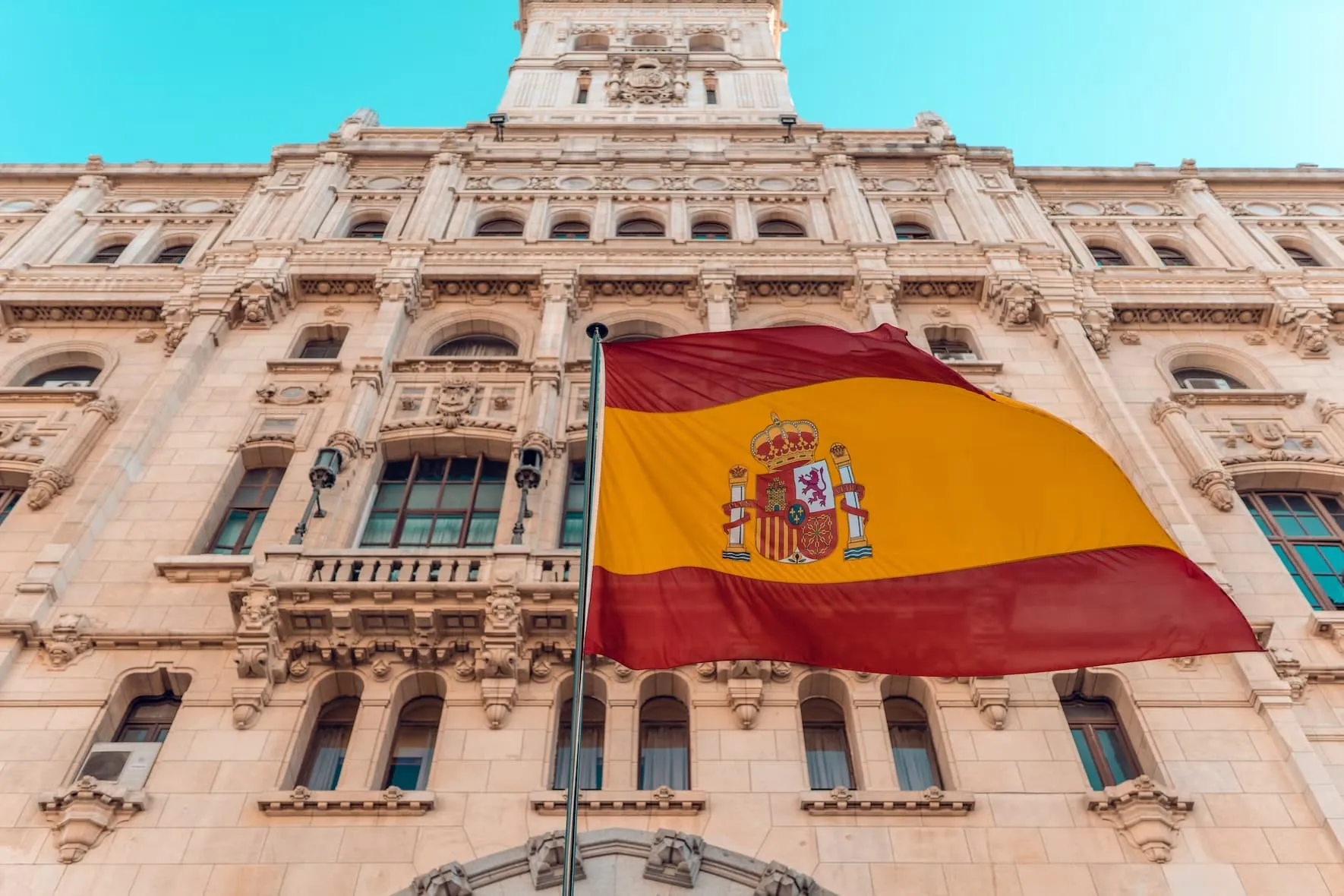Spanish Citizenship By Descent
It is possible to obtain Spanish citizenship by descent, allowing you to work, study, and live in Spain for as long as you want. The process of getting Spanish citizenship through ancestry depends on several factors, including how you are related to your Spanish ancestors.
If you’re interested in learning more about Spanish citizenship by descent or want to ask other questions about how you can immigrate to Spain, reach out to trusted immigration advisers today. You may call Immigration Advice Service on +44 (0)333 414 9244 or contact us online.
Read our 1001 reviews
Request a call back from our immigration experts
Benefits of Choosing IAS‘ Spain Immigration Lawyers
When it comes to obtaining a Spain visa or permit, IAS Spain immigration lawyers are well-equipped to help you.
With IAS’ track record of successfully helping clients visit or immigrate to Ireland successfully, we can help businesses and individuals achieve their goals.
Our dedicated immigration lawyers provide our services through a comprehensive and personalised approach. With IAS, you enjoy:

Expert support from an experienced immigration lawyer dedicated to your success



Support in gathering supporting documents and completing a high-quality application.



Confidence that your case is being handled by an experienced team.



In-house document checks done by lawyers who are accredited by the IBA in Madrid and Seville.
Services we Provide
Get Citizenship through Descent (Ancestry) in Spain
Being a Spanish national allows you to enjoy the rights and privileges that Spanish and EU citizenship provide. Using citizenship by descent, you can travel freely throughout Europe without a visa. With citizenship in Spain, you have the right to work in the country and any other EU member state. You would also be able to freely study and live in any of the countries of the European Union.
Spanish citizens can exercise the right to vote in the nation and can progress more quickly than people with different statuses when going through legal processes in Spain. Also, they do not have to worry about an expiration date on the benefits they get from being citizens of Spain.
With the introduction of new laws, such as the Grandchildren’s Law, not only children but also grandchildren and great-grandchildren can get citizenship in Spain if they meet eligibility criteria.
Eligibility Requirements for Citizenship by Descent in Spain
Overview
You can be eligible for citizenship in Spain by descent if:
- One of your parents is a Spanish national
- Your parents were both born in Spain
- You were adopted by a Spanish national before you turned 18 years old
- You have grandparents who are Spanish
- You are a Latin American with a grandparent born in Spain
- You have Spanish ancestors with citizenship in Spain
Those who get Spanish citizenship by descent, using family relationships with a Spanish grandparent, may be children of people who got Spanish nationality by origin and could not become Spanish nationals when the law was put into force as they were not over 18 years old at the time.
Applicants may also get eligibility for Spanish citizenship by descent if they are children or grandchildren born outside Spain of parents or grandparents who got exiled and left Spain. Eligibility may also be gained by an applicant if they are grandchildren of Spanish women who were born in Spain and married non-Spanish individuals before the 1978 Constitution and lost their Citizenship in Spain due to the marriage that took place after the law came into force.
Eligibility for Naturalisation
It is important that, when considering naturalisation to Spanish citizenship, you ensure that no more than 3 months are continuously spent outside of Spain. Failing to do this can lead to ineligibility for naturalisation. To be eligible for naturalisation, you should have lived in Spain for at least a year.
Naturalisation after 1 year is possible for the following types of people:
- Those who are born on Spanish soil
- People born outside Spain to a Spanish mother or father
- Those who are outside of Spain to a Spanish grandmother or grandfather
You could get naturalised after 2 years if you’re of Sephardic origin, from an Ibero-American country, or one of the countries in the table below:
| Andorra | Argentina | Bolivia | Brazil |
| Chile | Colombia | Costa Rica | Cuba |
| Dominican Republic | Ecuador | El Salvador | Equatorial Guinea |
| Guatemala | Honduras | Mexico | Nicaragua |
| Panama | Paraguay | Peru | Philippines |
| Portugal | Puerto Rico (U.S. Commonwealth) | Spain | Uruguay |
| Venezuela |
Find out if you’re eligible for Spanish citizenship by descent. Check the criteria with us today. CONTACT US
DELE A2 and CCSE Citizenship Tests
As an applicant, you have to pass the DELE A2 and CCSE citizenship tests. The DELE A2 is a Spanish language test. CCSE is a Spanish citizenship test that requires you to show knowledge of the Spanish constitution, as well as Spanish social and cultural practices.
You do not have to take the DELE A2 test if you are from a Latin American country. If you went to school or high school in Spain, you won’t need to take the CCSE test.
The tests can be taken at the Spanish embassy while in one’s home country. If you are in Spain, you can take the test at accredited test centres.
You should receive the test results in approximately 3 months after they are completed. A grade review request can be made if there is a disagreement over the grade. It could take 3 months before a final resolution is communicated to the candidate.
Blood Tests for Spanish Ancestry
You will need to get formal recognition that acknowledges your right to Spanish nationality through a blood test for genetics. As proving your kinship with your descendant forms a very important part of the application process, you will need to make sure that you prepare documents that prove your kinship.


How to Apply for Spanish Citizenship by Descent?
If you’re in Spain, you can submit your application to the Central Civil Registry. Applicants that are outside of Spain can apply to the Spanish consulate in their country. You should set your appointment early so that you can avoid delays in the processing of your application.
Setting the Appointment and Getting Naturalised
The application process can be sped up if you begin getting the appointment at the same time you file your appeal. Using this approach, the Spanish passport could be obtained in less than a year and a half.
10 years of continuous residence is usually required to become naturalised as a Spanish citizen but the years required can be much smaller for those who apply for Spanish citizenship by descent. To become naturalised to Spanish citizenship, you can apply for naturalisation under the Spanish citizenship by descent option after 1 or 2 years as a resident in Spain. As an applicant with a grandparent who is a Spanish citizen or with a Spanish parent born outside of Spain, you can use the fast-track naturalisation option after 1 year of residence in Spain to become a Spanish citizen. If you are in this category, you can visit the closest Spanish consulate to get your identification made.
Those who can apply for naturalisation after 2 years of residence in Spain include people from Ibero-American countries and of Andorra, the Philippines, Equatorial Guinea, Portugal, or persons of Sephardic origin.


Documents Required for Spanish Citizenship by Descent?
The documents you need to provide to complete your application for citizenship by descent in Spain include:
- Birth certificate of a Spanish parent from a Spanish Civil Registry, a foreign Civil Registry, or a consular or municipal
- Birth certificate of Spanish grandfather or grandmother of the applicant from a municipal Civil Registry in Spain
- Birth certificate linking the father or mother with the grandfather or grandmother
- Applicant’s birth certificate
- Spanish marriage certificate
- Death certificate
- Proof of payment of application fees
- Current passport and resident document
- Document confirming pass of DELE A2 and CCSE exams
- Proof of employment in Spain
- Oath at Civil Registry
- A document that proves the exile status of the grandfather and grandmother
- Documents proving legal residency
The documentation you need to provide depends on your circumstances. Children of Spanish emigrants would have to provide their birth certificate and the birth certificate of their father or mother from a Civil Registry. A grandchild of Spanish emigrants would need to provide those documents, as well as their grandparent’s birth certificate.
Children of Spanish nationals who are of legal age with nationality recognised by option would need to provide their birth certificate, as well as the birth certificate of their Spanish parent, showing that they opted for Spanish nationality of origin. The birth certificate of the applicant which shows that they are a child of a Spaniard could also be provided.


What are the Fees and Processing Times for Spanish Citizenship by Descent?
The fees for applying for Spanish citizenship by descent can range from €60 to €100. You may be required to pay more than that amount if extra evidence is needed to process your application. Application fees are non-refundable.
The Spanish government has a year to legally respond to applications. The processing times can be long for gaining citizenship by descent. It is not unusual for the application procedure to take 2 to 3 years.
The DELE A2 can cost around €130. The cost of the CCSE tests could cost around €85.
What Happens If My Application is Rejected?
In certain cases, an applicant may not get an answer after 12 months. This could indicate that their application has been rejected due to administrative inaction.
If your application gets rejected, you can appeal against the decision directly with the Ministry of Justice or the Spanish consulate closest to you. A response to an appeal may be provided in 3 – 4 months.


What Happens After My Application is Approved?
After your application is approved, you’ll need to give an oath of obedience to the Spanish constitution and laws, as well as swear loyalty to Spain’s king. The oath can be taken at the Civil Registry or before a notary.
In certain cases, taking your oath before a notary could be a faster process than taking it at an overcrowded Civil Registry in a big city. An overcrowded Civil Registry in a big city can take months to give an appointment.
There is no dual citizenship in Spain. This means that your relationship with Spain has to be exclusive unless you are from an Ibero-American country.
It is important to remember that if you go abroad and do not use your Spanish nationality within 3 years, the nearest Spanish consulate may begin a withdrawal process. This is why you should use your Spanish passport after you get it and make a declaration in the consulate that you intend to keep the passport.
Alternative Ways to Apply for Spanish Citizenship
If you’re not eligible for citizenship by descent in Spain, there may be other ways for you to obtain citizenship instead.
For instance, you may wish to look into obtaining Spanish citizenship by residency, which will involve living in Spain for a minimum number of years and fulfilling other requirements such as passing a language test and proving that you have not been outside the country for a certain period of time.
Alternatively, it is possible to obtain Spanish citizenship by marriage if you are married to a Spanish citizen and apply for residency in Spain.
There are also pathways to obtain citizenship through option or birth, though these require you to already have been born into a situation where you are eligible for citizenship by circumstance.
How Can IAS Help?
The introduction of new laws in Spain means that thousands of people could be eligible for citizenship by descent. The Grandchildren’s Law is one of the laws which entitles descendants of Spaniards to Spanish nationality if their grandparents left Spain because of dictatorship and civil war.
As more people apply for Spanish citizenship by descent, there will be greater demand to understand what it takes to successfully apply for Spanish citizenship. Due to the huge amount of document requirements and details required to complete processes, some applicants fail to make successful applications.
Some applicants can get overwhelmed by the thought of having to find not only their documents (which they may no longer possess) but also the documents of relatives. This could mean that they have to spend extra time finding the appropriate organisations to get the documents. The process may seem complicated but with the right experts, it can be simplified for your benefit.
Our team of professionals is experienced in helping applicants for Spanish citizenship to navigate through the processes needed to gain citizenship in Spain. Our expert advisers are equipped with the resources you need to quickly process your application.
People often find that it takes months to prepare documentation on their own and that they don’t have all the details needed to meet the application requirements for citizenship. With the help of our advisers, your citizenship application can be completed quickly. Relying on professionals at Immigration Advice Services helps to get the necessary documents as quickly as possible so that your application can be processed quickly.
If you are interested in getting more information about our immigration services and how we can help you, please call us on +44 (0)333 414 9244, or contact us online today.
Table of Contents
Table of Contents will appear here.Legal Disclaimer
The information provided is for general informational purposes only and does not constitute legal advice. While we make every effort to ensure accuracy, the law may change, and the information may not reflect the most current legal developments. No warranty is given regarding the accuracy or completeness of the information, and we do not accept liability in such cases. We recommend consulting with a qualified lawyer at Immigration Advice Service before making any decisions based on the content provided.
Frequently Asked Questions
Citizens of Ibero-American nations (mainly in South America) can get dual citizenship after two years under their second nationality.
You could get more benefits as a Spanish citizen than with a residence permit. While a residence permit may make you a permanent resident, you have more rights with Spanish citizenship, such as the right to vote in Spain.
You can travel outside of Spain from the period your application gets submitted until the time you receive your resolution. The requirements to make an appointment for oath on time and not lose permanent residence would need to be met.
Changes to immigration laws in Spain could take place in the future. A political party in Spain stated its intentions to repeal the Grandchildren’s Law if it came into power. As the law widened the range of people that could be eligible for citizenship by descent, such a change in the law could make certain types of applicants ineligible for Spanish citizenship by descent.
Descendants of Sephardic Jews can try to obtain Spanish citizenship if their family was expelled from Spain in the 15th century. Proof of your use of ladino or “haketia” language and a certificate from a Sephardic community leader may be provided to show your relationship to the diaspora. You may also confirm that your ancestors are on lists of Sephardic families protected by Spain.


What our clients are saying
How our UK Immigration Lawyers can help
At the Immigration Advice Service our lawyers specialise in a wide range of UK visas, nationality and asylum applications and have represented clients in various successful complex and high-profile cases.















